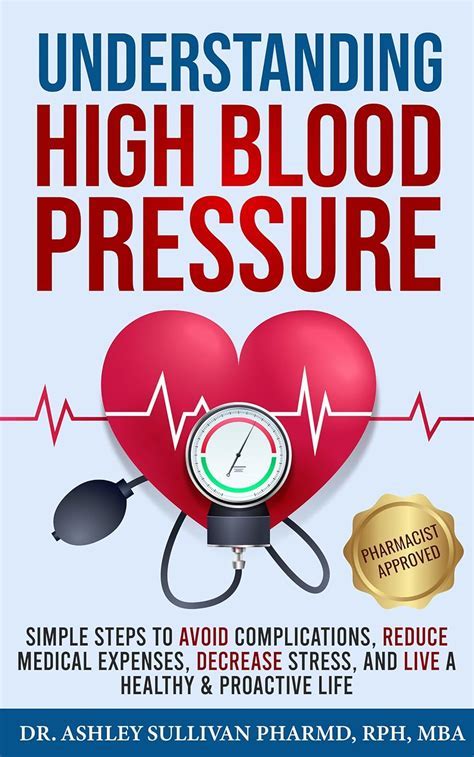Intro
Learn about normal blood pressure in pregnancy range, including healthy blood pressure levels, hypertension risks, and preeclampsia symptoms, to ensure a safe and healthy pregnancy with regular blood pressure monitoring and prenatal care.
Normal blood pressure in pregnancy is a crucial aspect of a healthy pregnancy. Blood pressure is the force of blood pushing against the walls of arteries as it circulates throughout the body. During pregnancy, blood pressure is closely monitored to ensure the health and well-being of both the mother and the baby. High blood pressure, also known as hypertension, can lead to complications such as preeclampsia, which can be life-threatening if left untreated. On the other hand, low blood pressure, also known as hypotension, can cause dizziness, fainting, and decreased blood flow to the baby.
Blood pressure is measured in millimeters of mercury (mmHg) and is expressed as two numbers: systolic pressure (the top number) and diastolic pressure (the bottom number). Systolic pressure measures the pressure in the arteries when the heart beats, while diastolic pressure measures the pressure between beats. A normal blood pressure reading is typically around 120/80 mmHg. However, during pregnancy, the American College of Obstetricians and Gynecologists (ACOG) defines normal blood pressure as less than 120/80 mmHg.
Understanding the importance of blood pressure during pregnancy is vital for expectant mothers. It can help them identify potential complications early on and take necessary steps to manage their blood pressure. This can include making lifestyle changes such as maintaining a healthy diet, exercising regularly, and managing stress. By monitoring blood pressure closely, healthcare providers can help prevent complications and ensure a healthy pregnancy.
Understanding Blood Pressure in Pregnancy

Blood pressure can fluctuate throughout the day, and it's not uncommon for blood pressure to be higher in the morning and lower at night. During pregnancy, blood pressure tends to decrease in the second trimester due to the increase in blood volume and the relaxation of blood vessels. However, it's essential to monitor blood pressure regularly to detect any changes or abnormalities. Healthcare providers typically take blood pressure readings at each prenatal visit, and they may also recommend monitoring blood pressure at home.
Factors That Affect Blood Pressure in Pregnancy
Several factors can affect blood pressure during pregnancy, including: * Age: Women over 35 years old are at higher risk of developing high blood pressure during pregnancy. * Pre-existing medical conditions: Women with pre-existing medical conditions such as kidney disease, diabetes, or hypertension are at higher risk of developing high blood pressure during pregnancy. * Family history: Women with a family history of hypertension or preeclampsia are at higher risk of developing high blood pressure during pregnancy. * Obesity: Women who are overweight or obese are at higher risk of developing high blood pressure during pregnancy. * Multiple pregnancy: Women carrying twins or other multiples are at higher risk of developing high blood pressure during pregnancy.Normal Blood Pressure Range in Pregnancy

The normal blood pressure range in pregnancy is less than 120/80 mmHg. However, blood pressure can vary from woman to woman, and what's considered normal for one woman may be different for another. Healthcare providers typically consider the following blood pressure ranges as normal during pregnancy:
- Systolic pressure: less than 120 mmHg
- Diastolic pressure: less than 80 mmHg
- Mean arterial pressure: less than 90 mmHg
It's essential to note that blood pressure can fluctuate throughout pregnancy, and it's not uncommon for blood pressure to be higher in the third trimester due to the increased blood volume and the compression of blood vessels by the growing uterus.
Complications of High Blood Pressure in Pregnancy
High blood pressure during pregnancy can lead to several complications, including: * Preeclampsia: a condition characterized by high blood pressure and damage to organs such as the kidneys and liver. * Gestational hypertension: a condition characterized by high blood pressure that develops after 20 weeks of gestation. * Chronic hypertension: a condition characterized by high blood pressure that existed before pregnancy. * Placental abruption: a condition characterized by the separation of the placenta from the uterus, which can cause bleeding and deprive the baby of oxygen and nutrients.Managing Blood Pressure in Pregnancy

Managing blood pressure during pregnancy is crucial to prevent complications and ensure a healthy pregnancy. Here are some tips to help manage blood pressure:
- Maintain a healthy diet: Eating a balanced diet that's rich in fruits, vegetables, and whole grains can help lower blood pressure.
- Exercise regularly: Regular exercise can help lower blood pressure and improve overall health.
- Manage stress: Stress can raise blood pressure, so it's essential to find healthy ways to manage stress, such as meditation, deep breathing, or yoga.
- Get enough sleep: Getting enough sleep can help lower blood pressure and improve overall health.
- Monitor blood pressure regularly: Regular blood pressure monitoring can help detect any changes or abnormalities.
Lifestyle Changes to Manage Blood Pressure in Pregnancy
In addition to the tips mentioned above, here are some lifestyle changes that can help manage blood pressure during pregnancy: * Quit smoking: Smoking can raise blood pressure and increase the risk of complications during pregnancy. * Limit caffeine intake: High caffeine intake can raise blood pressure and increase the risk of complications during pregnancy. * Avoid excessive salt intake: Excessive salt intake can raise blood pressure and increase the risk of complications during pregnancy. * Stay hydrated: Drinking enough water can help lower blood pressure and improve overall health.Monitoring Blood Pressure in Pregnancy

Monitoring blood pressure during pregnancy is crucial to detect any changes or abnormalities. Healthcare providers typically take blood pressure readings at each prenatal visit, and they may also recommend monitoring blood pressure at home. Here are some tips for monitoring blood pressure at home:
- Use a blood pressure monitor that's specifically designed for pregnancy.
- Take blood pressure readings at the same time every day.
- Take multiple readings and record the average.
- Report any changes or abnormalities to your healthcare provider.
When to Seek Medical Attention
If you experience any of the following symptoms, seek medical attention immediately: * Severe headache * Vision changes * Severe abdominal pain * Vaginal bleeding * Fainting or dizzinessIt's essential to seek medical attention if you have a blood pressure reading that's higher than 140/90 mmHg or if you experience any symptoms of preeclampsia or other complications.
Conclusion and Next Steps

In conclusion, normal blood pressure in pregnancy is crucial for a healthy pregnancy. Monitoring blood pressure regularly and making lifestyle changes can help manage blood pressure and prevent complications. If you have any concerns or questions about your blood pressure during pregnancy, be sure to discuss them with your healthcare provider. By working together, you can ensure a healthy pregnancy and a healthy baby.
What is the normal blood pressure range in pregnancy?
+The normal blood pressure range in pregnancy is less than 120/80 mmHg.
What are the complications of high blood pressure in pregnancy?
+The complications of high blood pressure in pregnancy include preeclampsia, gestational hypertension, chronic hypertension, and placental abruption.
How can I manage my blood pressure during pregnancy?
+You can manage your blood pressure during pregnancy by maintaining a healthy diet, exercising regularly, managing stress, getting enough sleep, and monitoring your blood pressure regularly.
We hope this article has provided you with valuable information about normal blood pressure in pregnancy. If you have any further questions or concerns, please don't hesitate to reach out to your healthcare provider. Share this article with your friends and family to help spread awareness about the importance of blood pressure during pregnancy.
